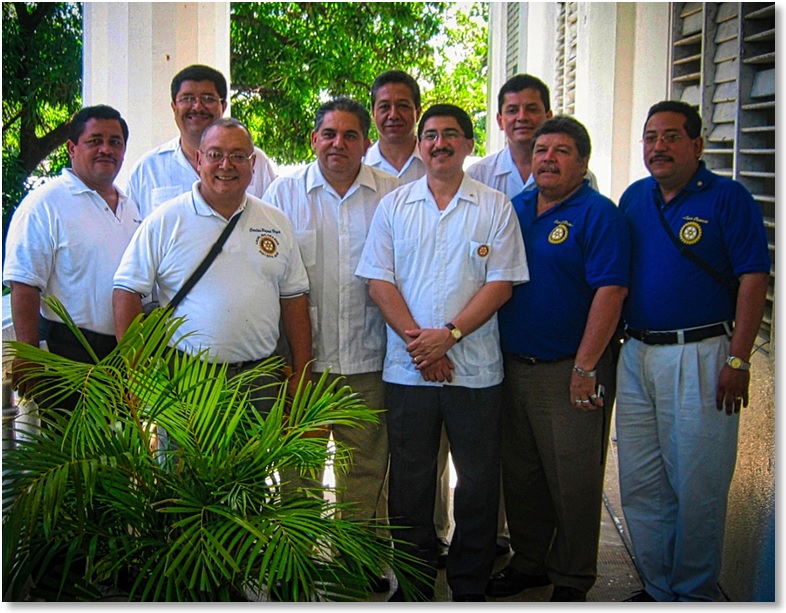Members of the Choloteca (Honduras) Rotary Club, local sponsors of the
Medical Information Center in the Regional Hospital.
In celebration of our 25th anniversary, WiRED is pleased to bring you stories from our archives. These articles provide a glimpse of WiRED’s early work as they depict the places and the projects we have focused on over the years.
At the same time WiRED was working on the two-country project discussed in this story, we had projects underway in Bosnia, Kosovo, Serbia, Iraq, Sierra Leone and elsewhere. The common element in many of WiRED’s projects at the time was the need to deal with conflicts or the significant aftereffects of conflicts. A common element in all conflicts is that people see each other as different by race, religion or political ideology. Nicaragua had recently ended a war, known as the Revolution, that took at least 30,000 lives and left many people wounded physically and psychologically. The battle lines in that conflict were drawn around political ideology.
WiRED’s projects in Central America, as elsewhere in the world, provide physicians and nurses with medical information and training. While we focus on education, we quietly maintain a second purpose for our work, especially in conflict regions: Through our programs, we attempt to make the point that an element common across regions, races, religions and political ideologies is the vulnerabilities of our human bodies–friends and foes alike. Specifically, our vulnerability to disease, injury and just wearing out over time.
In the Merchant of Venice, Shakespeare wrote, “. . . [We are] hurt with the same weapons, subject to the same diseases, healed by the same means . . . If you prick us do we not bleed? . . . If you poison us do we not die?” WiRED advances the idea of our commonality whenever we can, by stressing that medical and health training are touchstones across populations, across the divides and battle lines. Our training programs for doctors and nurses are valid anywhere. Modules on cancer, diabetes and COVID-19 are as relevant and applicable in Managua as in Mombasa. We don’t create one program for Africans and one for Central Americans, one for Muslims and one for Christians or one for soldiers and one for rebels. Why would we? The tie that binds is our human bodies and the diseases, injuries and aging processes we all face.
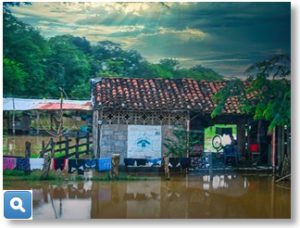
WiRED Executive Director Gary Selnow’s speech, printed below, made the point that our medical and health training programs address our shared vulnerabilities and common hopes for improved health for ourselves, our families and people in our community. Although we had no expectations then or now for any particular outcomes of making that point, we continue to believe it is a point worth making. It’s easy to come to the conclusion these days that there isn’t a lot else drawing us together.
The following story briefly describes a project that brought WiRED’s team to Leon, Nicaragua and Choluteca, Honduras. We arrived within days of the deadly Hurricane Stan, and flooding made driving between the two countries a small challenge. And still our team was able to install the equipment and hold launching ceremonies attended by hospital staff and members of local Rotary Clubs. The Tiburon-Belvedere (California) Club and Rotary International provided funding for the project.
From Oct 2005
New centers inaugurated in Nicaragua, Honduras
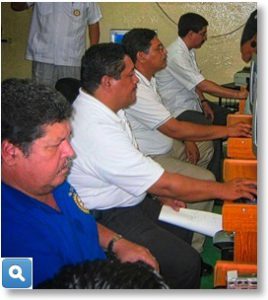
On October 12, the Center de salud. Perla Maria Norori—Leon’s main medical school—welcomed a new WiRED Medical Information Center (MIC) to Nicaragua. Students, professors and physicians expressed their gratitude for the center and discussed their circumstances in stark terms at MIC’s opening ceremony.
Student Renee Castillo was enthusiastic about the MIC. “To have this new information source will be a great advantage in our work and our studies. At this point, we have just a small collection of books and all of them are several printings behind current volumes,” he said. “Now we can use this Medical Information Center to access the latest updated information and to stay in touch with our colleagues in other places.”
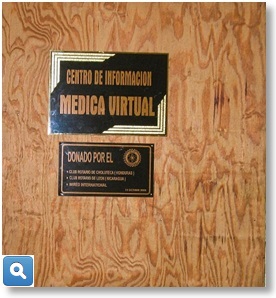
WiRED executive director Dr. Gary Selnow spoke at the event (see remarks below). He was joined by a representative from the Leon Rotary Club and Perla Maria Norori’s director for the ribbon cutting ceremony, which was attended by approximately 60 enthusiastic staff, students and physicians. Once a local priest blessed the center, revelers were given demonstrations of the computers and their capabilities.
On October 14, WiRED installed two MICs at teaching hospitals in Choluteca, Honduras—inaugurating WiRED’s presence in this beautiful but impoverished country.
The Tiburon/Belvedere Rotary Club (CA) and Rotary International are the Nicaraguan and Honduran Centers’ primary sponsors.
Oct. 12, 2005 — Dr. Gary Selnow’s Speech, at the Opening of the Center de salud, Perla Maria Norori in Leon, Nicaragua
“Thank you very much for your warm welcome. It is always a pleasure to return to Leon and to visit with you, my friends of the Leon Rotary Club, with members of the Leon medical community and with the good citizens of this beautiful city.
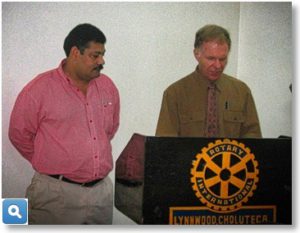
I bring you greetings from the men and women of the Tiburon Belvedere Rotary Club. These partners have generously contributed funds that, in cooperation with Rotary International, have assisted with this new Medical Information Center. They have asked me to extend their best wishes and to tell you how pleased they are to share in this medical and healthcare project — the third such activity in Leon.
I also extend greetings from WiRED International’s board of directors and volunteers who donate their time to Medical Information Projects here in Leon, in Honduras and in eight other countries around the world including Kenya, Sierra Leone, Kosovo, Serbia and Iraq.
Before I go further, I want to thank my good friend and colleague, Santiago Castellon, who has worked tirelessly on this effort. He has helped organize the work here and in Honduras, and I want to express my gratitude to him and to the technicians, assistants and the other people who have been part of this project. I also want to thank my friend and translator Emanuel Alonso.
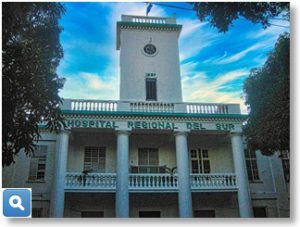
When we look at all the people joining together to provide medical information in Leon, at the hundreds of other people working in WiRED’s Centers around the world, and at hundreds of thousands of people using the information provided, we begin to see how universal our concern for healthcare has become. In fact, it is tempting to consider an intriguing possibility: Healthcare is a common concern, could it become a great unifier?
Much divides the world today. Sadly, we have wars and conflicts in too many places. We partition ourselves by race, religion, ideology and political philosophy. Many things come between us, and the results are often heartbreaking.
But truth be told, one issue unites us; one thing that all people seek, no matter where we live, how we pray, what color skin we have. We all seek good health for ourselves, and we all want good health for our children and for the people we love.
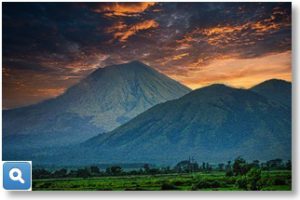
In a beleaguered world where we look for common ground where people can stand together, our quest for good health can be a valuable starting place. Doctors and patients 10,000 miles from here face many of the same health issues you face in Leon. Treatments that cure illness in this place can help patients in Honduras, Kenya, Kosovo and Iraq. Medicine and healthcare remind us that we are not so different.
WiRED, through this Medical Information Center and others on four continents, seeks to unite medical communities around the world through improved communication. We seek to demonstrate that as human beings, we are alike at the most fundamental level. We sometimes dwell on the differences of race and ideology, religion and politics, but we, ourselves, add those dividers. When we are born into this world, we are all outfitted with this fragile human form.
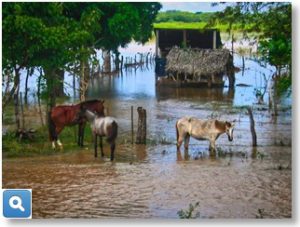
Illness, disease and injury afflict us all; our search for cures and ways to mend broken bodies join us together.
And so, as we dedicate this Medical Information Center today, we cut this ribbon with a great hope that the information dispensed to doctors and medical students will contribute in their efforts to heal Leon’s citizens. But, we also hope that this Center will remind us of our commonality, of the fact that, at heart, we are the same, one and all. It is true that much divides us, but our quest for good health is the tie that binds.”

